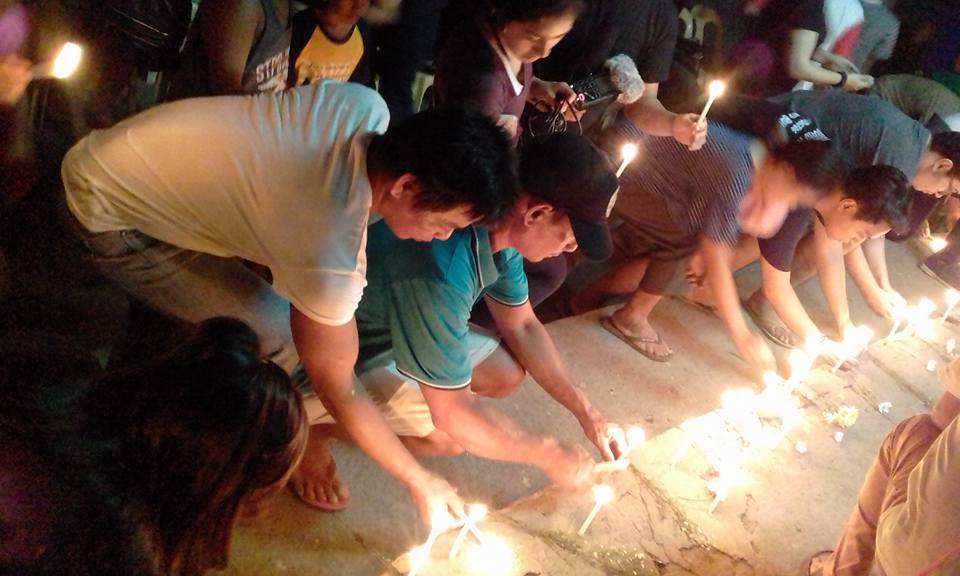Workplace safety NGO Institute for Occupational Health and Safety Development (IOHSAD) held a candle lighting activity in Zambales province to mark Workers’ Memorial Day and remember all the Hanjin workers who died due to work since the largest shipyard company started its operations in the country in 2006.
This annual red-letter day is aimed to gather workers in different parts of the world to remember all workers who have died due to work. IOHSAD slammed the government’s failure to ensure safe workplaces and pass a pro-worker occupational safety and health (OSH) bill amid recent workplace tragedies such as the NCCC mall fire in Davao last December 2017 that claimed the lives of 38 workers.
“This government’s track record of broken promises includes its failure to pass a pro-worker OSH Bill. Ending contractualization and ensuring safer workplaces are not in President Duterte’s priorities,” says Nadia De Leon, IOHSAD advocacy officer.
IOHSAD said the commemoration of this year’s Workers’ Memorial Day is more significant as the Filipino workers prepare for a huge and historic mobilization on May 1.
“Contractual workers do not only suffer from insecure jobs but they also handle the most hazardous work. Their stories reveal how they are deprived of necessary medical attention during emergencies at work. They even shell out from their pockets to provide for their own personal protective equipment such as goggles, safety shoes and ear plugs,” added De Leon.
Majority of the workers who died in the Kentex factory fire three years ago, were contractual and agency workers. This workplace tragedy exposed not only the employers’ grave violations of safety standards that caused the workers’ deaths but also the miserable plight of contractual workers. They were overworked, underpaid and exposed to unsafe work. These deplorable working conditions and precarious work claimed the lives of more than 72 Kentex workers.
“Our call for safe workplaces is part of the Filipino workers demand to end contractualization. Regular jobs, decent wages and strong unions are the workers’ most reliable shields against deadly and unsafe work,” ended De Leon.
